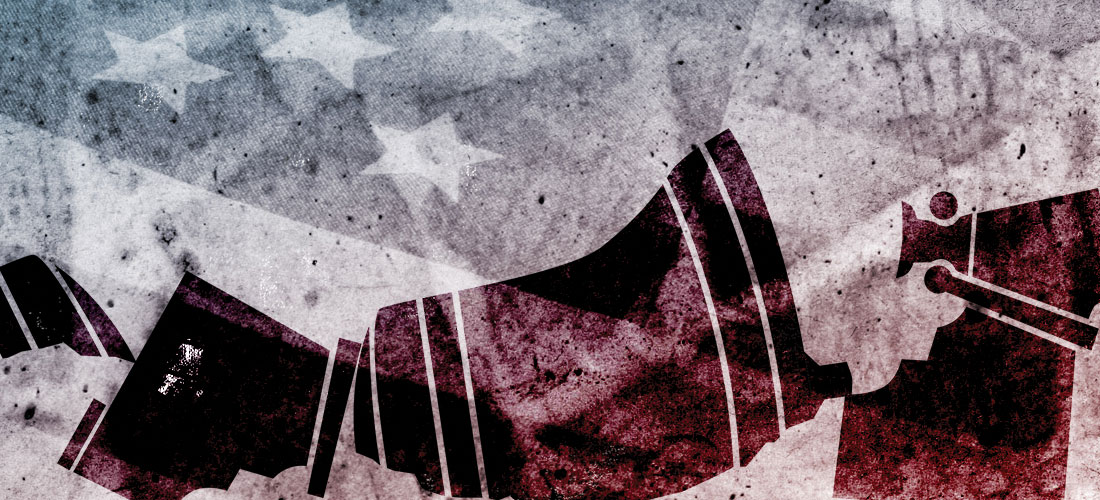Debates about 'freedom' and 'choice' often misconstrue democracy

Illustration by Sara Wadford/Shutterstock
Editor’s Note: Intersection is a column that explores issues of race, gender and law across America’s criminal and social justice landscape.
Beginning in grade school, Americans learn the Pledge of Allegiance, with the last line holding particular resonance: With liberty and justice for all. Our country takes the concept of freedom (if not justice) very seriously. The theme is echoed in our songs: “My country ‘tis of thee, sweet land of liberty.” We are the “land of the free and the home of the brave.” Americans enjoy freedoms denied to many living under authoritarian or anocratic rule—we have freedom of the press, the right to assemble and protest, and the rule of law.
 Liane Jackson
Liane JacksonAlthough we live in a democracy, that doesn’t mean we have a wholesale, unfettered endorsement to do whatever we want. Our democracy is a social contract—a compact that is the foundation of the U.S. political system. A government established by “We the People” is indeed required to serve the people. But in exchange, members cooperate to ensure the common welfare and social benefits, and they must sacrifice some individual liberty.
There are limitations on personal freedoms to avoid descent into chaos. For example, we’re not free to yell “Fire!” in a crowded theater (where there’s no fire). We’re not free to incite violence. Complaints about the regulation of semi-automatic weapons or government mask mandates arise from myopic self-interest incompatible with civic responsibility. The core values of our Constitution are grounded in individual rights, but that doesn’t mean we can abrogate our duty to the collective.
A new social compact
In the U.S., there is a constant tension between the idea of collective good and individual liberty.
For some, freedom means pursuing personal and private interests and enjoyment, irrespective of how it impacts others. It’s an every-man-for-himself individualism that rejects the altruistic ideal. These are often the same people who insist America is the greatest nation on earth.
But a great nation is stronger together, as a republic—not islands.
Thomas Hobbes, one of the philosophers whose work the framers incorporated when drafting the Constitution, warned that selfish desires must be set aside and some individual freedoms sacrificed for the greater good; that without a social contract to cooperate for mutual benefit, life would be “solitary, poor, nasty, brutish and short.”
One doesn’t need to imagine how this fate might play out in a public health emergency. We now have lived experience of the deadly consequences of disregard for our neighbors—particularly the elderly or immunocompromised, essential workers and the poor.
In many countries, there is no question that wearing a mask or following scientific advice from government health authorities benefits everyone because of a strong social compact between citizens, and their acknowledgement of a responsibility to the broader society. In the U.S., science has become polarizing. And it’s become apparent that being anti-mask and/or anti-vaccine often is less about public health or data and more of a signal indicating an allegiance to a political bent—at the expense of what’s best for our country.
Choose wisely
People may not like the idea of being required to wear a mask, but these sorts of health mandates are omnipresent. Whether it’s a seat belt, a helmet, no smoking or vaccination requirements to attend school, the government can and frequently does regulate public health for the greater good.
Anti-maskers and anti-vaxxers have invoked their constitutional rights, asserting the state has no authority to regulate their bodies. But what about the individual rights of women to choose what to do with their bodies?
Texas created an abortion law that essentially places a woman’s reproductive decisions into the hands of private bounty hunters. Many state governments have gone into overdrive, hoping to overturn U.S. Supreme Court precedent and replicate the Texas law that restricts a woman’s right to an abortion after six weeks. It’s a law that seems inherently un-American, but in reality, a state act that evades the constitutional promise of equal rights and disregards the will of the majority is a tale as old as our country. From slavery to Jim Crow to reproductive control, the state has bound and regulated personal freedoms. But these were not acts to benefit the greater good—these were hostile impositions meant to subjugate and control.
One for all, and all for one
But freedom isn’t an a la carte menu. Legislators and the public can’t be anti-mask or anti-vaccine and pro-controlling someone else’s womb. You can’t decide you want to stop a pregnancy shortly after conception because “every life counts” and then execute the criminally accused. Liberty and justice for all should mean that we never put an innocent person to death. It should mean we don’t incarcerate without unequivocal evidence of guilt. Migrants and refugees shouldn’t be put in cages or be denied due process by agents whipping them away at the border. It’s certainly possible to hold contradictory sentiments about who deserves freedom and when while professing a dedication to “liberty and justice,” but there’s no moral authority to this oxymoronic position.
A sincere commitment to the concept of liberty means we don’t ignore the constitutional promise, equal rights or the individual’s right to choose—as long as those choices don’t trample our collective responsibilities. That’s what it means to be a true patriot.
This story was originally published in the December 2021/January 2022 issue of the ABA Journal under the headline: “Liberty’s Limits: Debates about ‘freedom’ and ‘choice’ often misconstrue democracy.”
This column reflects the opinions of the author and not necessarily the views of the ABA Journal—or the American Bar Association.



